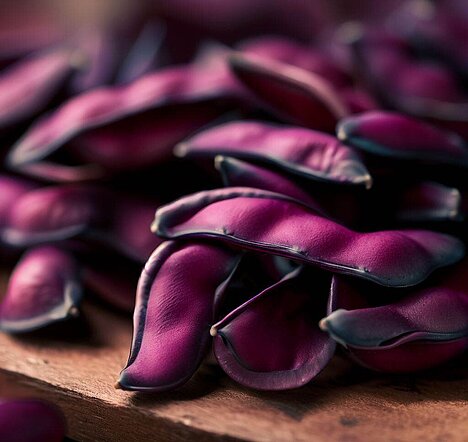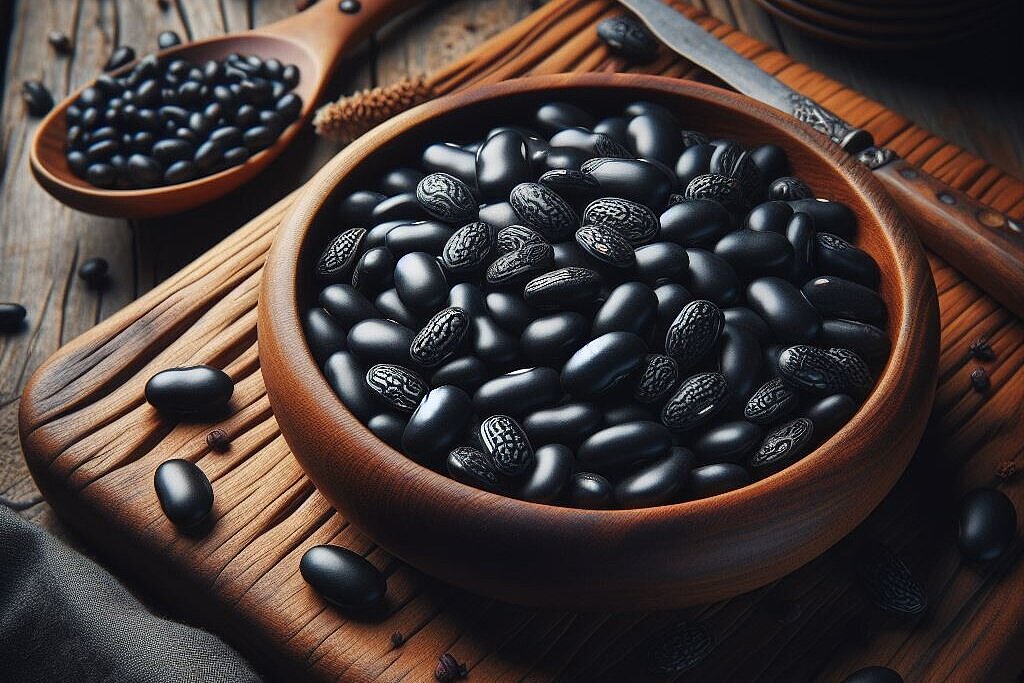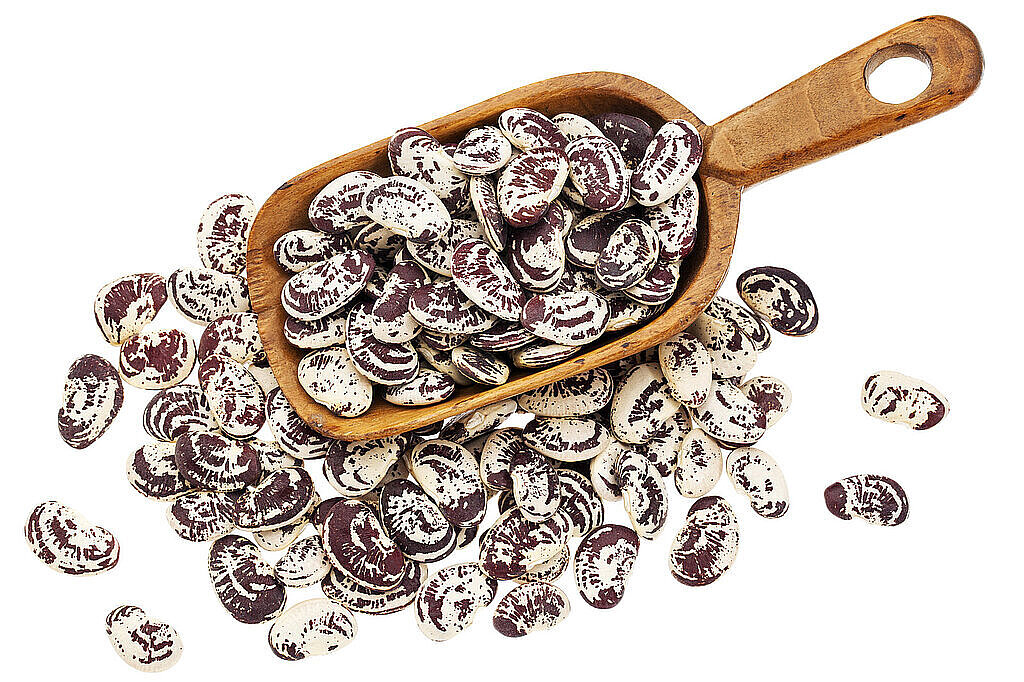Helmeted bean

The helmet bean (Lablab purpureus) is a tropical plant from the legume family, also known as the Indian bean, Egyptian bean or hyacinth bean. It is closely related to other bean species and is mainly cultivated as a crop in Africa, South East Asia and India. The helmet bean owes its name to the helmet-shaped ridges on the seeds, which grow in long, purple-colored pods. The flowers are pink to purple or white and exude a pleasant fragrance. The helmet bean is a climbing plant that can climb up to 10 m high. It tolerates high temperatures but not frost.
What is so special about the helmet bean?
The helmet bean is a versatile plant that can be used both as animal feed and as food. The unripe pods and seeds as well as the ripe seeds can be eaten cooked. The seeds contain a lot of protein and carbohydrates and are therefore a good source of vegetable protein. The leaves and flowers can be used as a vegetable or salad. The roots can be used as a remedy. The plant also improves soil quality by binding nitrogen and suppressing weeds.
Is the helmet bean suitable for dogs?
Helmet beans can also be interesting for dogs if they are prepared correctly. The raw seeds and pods are poisonous as they contain cyanogenic glycosides that can release hydrocyanic acid. However, the poison is destroyed by cooking. The toxicity also varies greatly depending on the variety. White flowers and light-colored seeds are usually less poisonous than purple flowers and dark seeds.
The cooked pods and seeds can be given to dogs as a supplement to meat to cover their protein requirements. They also contain fiber, which aids digestion, as well as minerals such as calcium, iron and magnesium. It can also help regulate blood sugar levels and strengthen the immune system.
The leaves and flowers can also be used boiled or steamed as a vegetable side dish. They are rich in vitamins A, C and K as well as antioxidants.
Are there any disadvantages or risks of helmet beans?
Helmet beans are not suitable for every dog. Some dogs can have an allergic reaction to the plant or develop gastrointestinal problems. Care should also be taken to ensure that the helmet bean is not confused with other poisonous plants such as wisteria or vetch beans.
The helmet bean should also not be fed in large quantities, as it can cause flatulence. It can also increase uric acid levels and be harmful to dogs with gout or kidney problems.
Legumes should always be well cooked to destroy the toxin. Raw or undercooked pulses or seeds can lead to symptoms of poisoning such as vomiting, diarrhea, breathing difficulties or cramps.
Helmet beans are an exotic ingredient for dogs with many benefits, but also some disadvantages. They can serve as a source of vegetable protein and promote health.
If you notice any signs of hypersensitivity or poisoning in your dog, you should see your vet immediately. We are not a substitute for a vet, but we try to be as accurate as possible. Every dog reacts differently and we recommend you get a second opinion or consult your vet if in doubt.
Stay healthy and take good care of your four-legged friend!😊
Similar to Helmeted bean
Kidney beans are a variety of the common bean (Phaseolus vulgaris) and belong to the legume family. They are named after the kidney because of their visual similarity in shape and color. They...
Black beans contain many valuable nutrients that are important for your dog's health. These include: Fiber: It aids digestion and can prevent constipation or diarrhea.Protein: They provide...
Pinto beans are a type of garden bean that belongs to the legume family. They have a beige-brown color with red speckles and are therefore also called "speckled beans". They originally come from...
Lima beans (Phaseolus lunatus) are a plant species from the Phaseolus genus, which also includes other bean species such as the garden bean and the kidney bean. They probably originate from Peru and...



